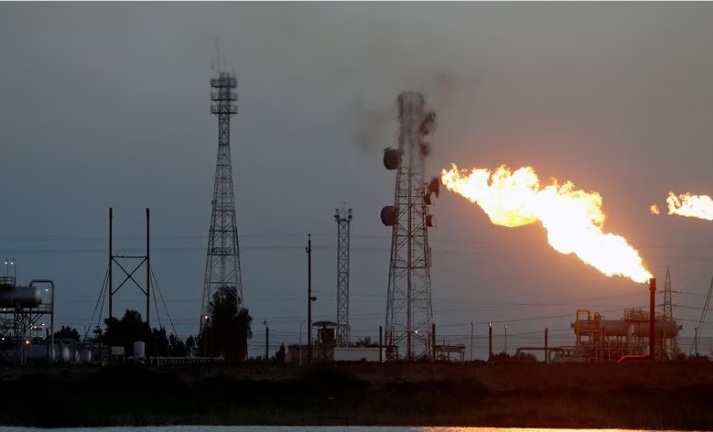Surprise oil output cuts propel fuel price affecting agriculture & transport
Sun Online Desk
Published: 03 Apr 2023

Saudi Arabia and other OPEC+ oil producers on Sunday announced further oil output cuts of around 1.16 million barrels per day, in a surprise move that analysts said would cause an immediate rise in prices, reports Reuters.
The United States called the decision inadvisable as it will impact the price hike of oil while experts and concerned people in Bangladesh apprehended the fuel production cuts coupled with new taxation are likely to take a heavy toll on agriculture and transport sector.
BBC reports the oil prices have surged after several of the world's largest oil exporters announced surprise cuts in production.
The price of Brent Crude oil jumped by more than $5 a barrel, or 7%, to above $85 as trading began.
The increase came after Saudi Arabia, Iraq and several Gulf states said on Sunday they were cutting output by more than one million barrels a day.
The pledges bring the total volume of cuts by OPEC+, which groups the Organization of the Petroleum Exporting Countries with Russia and other allies, to 3.66 million bpd according to Reuters calculations, equal to 3.7% of global demand.
Sunday's development comes a day before a virtual meeting of an OPEC+ ministerial panel, which includes Saudi Arabia and Russia, and which had been expected to stick to 2 million bpd of cuts already in place until the end of 2023.
Oil prices last month fell towards $70 a barrel, the lowest in 15 months, on concern that a global banking crisis would hit demand. Still, further action by OPEC+ to support the market was not expected after sources downplayed this prospect and crude recovered towards $80.
The latest reductions could lift oil prices by $10 per barrel, the head of investment firm Pickering Energy Partners said on Sunday, while oil broker PVM said it expected an immediate jump once trading starts after the weekend.
"I expect the market to open several dollars higher ... possibly as much as $3," said PVM's Tamas Varga. "The step is unreservedly bullish."
Top OPEC producer Saudi Arabia said it would cut output by 500,000 bpd. The Saudi energy ministry said the kingdom's voluntary reduction was a precautionary measure aimed at supporting the stability of the oil market.
"OPEC is taking pre-emptive steps in case of any possible demand reduction," Amrita Sen, founder and director of Energy Aspects, said.
Last October, OPEC+ had agreed to an output cut of 2 million bpd from November until the end of the year, a move that angered Washington as tighter supply boosts oil prices.
The U.S. has argued that the world needs lower prices to support economic growth and prevent Russian President Vladimir Putin from earning more revenue to fund the Ukraine war.
The Biden administration said it sees the move announced by the producers on Sunday as unwise.
"We don't think cuts are advisable at this moment given market uncertainty - and we've made that clear," a spokesperson for the National Security Council said.
STARTS IN MAY
The voluntary cuts start from May and last until the end of the year. Iraq will reduce its production by 211,000 bpd, according to an official statement.
The UAE said it would cut production by 144,000 bpd, Kuwait announced a cut of 128,000 bpd while Oman announced a cut of 40,000 bpd and Algeria said it would cut its output by 48,000 bpd. Kazakhstan will also cut output by 78,000 bpd.
Russia's Deputy Prime Minister Alexander Novak also said on Sunday that Moscow would extend a voluntary cut of 500,000 bpd until the end of 2023. Moscow announced those cuts unilaterally in February following the introduction of Western price caps.
An OPEC+ source said Gabon would make a voluntary cut of 8,000 bpd and not all OPEC+ members were joining the move as some are already pumping well below agreed levels due to a lack of production capacity.
After Russia's unilateral reductions, U.S. officials said its alliance with other OPEC members was weakening, but Sunday's move shows the cooperation is still strong.
This surprise announcement is significant for several reasons, said an analysis of Sameer Hashmi, Middle East business correspondent of BBC.
Analysis is as follows:
Despite price fluctuations in recent months, there were concerns that global demand for oil would outstrip supply, especially towards the end of the year. The increase in oil prices following Sunday's announcement could potentially put more pressure on inflation - worsening the cost-of-living crisis and raising the risk of recession.
Interestingly, this announcement comes just a day before the Opec+ meeting. There were indications from members that they would stick to the same production policy, meaning there would be no fresh cuts, which is why it has come as a huge surprise. There is a possibility that more members of the group could announce voluntary cuts - squeezing supplies even more.
The development will also likely further strain ties between the US and Saudi Arabia-led Opec+. The White House had called on the group to increase supplies to cool down prices and check Russian finances.
However, Sunday's announcement also underlines the close cooperation between oil-producing countries and Russia.

